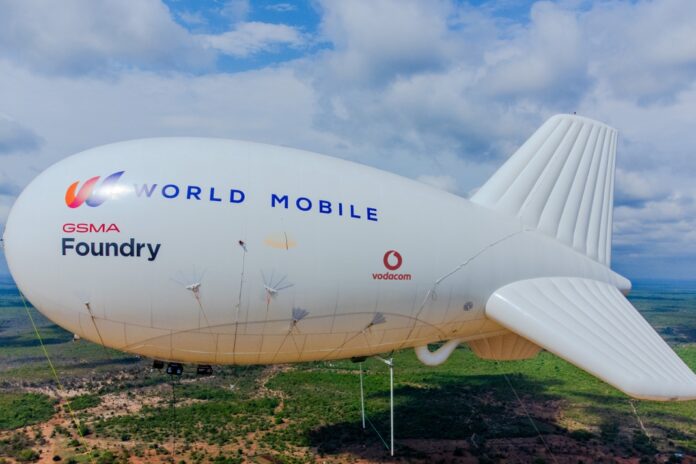Aerostat operator World Mobile calculates connectivity can cost 12 times less than traditional mobile infrastructure
World Mobile, which pioneers technology to bridge connectivity gaps, began “a trailblazing aerostat trial” with Vodacom Mozambique.
Aerostats are tethered balloons equipped with telecoms equipment which are a promising solution for bringing internet access to underserved communities. World Mobile’s aerostats are deployed about 300 metres in the air, tethered to the ground. They are intended to provide last-mile connectivity using a custom radio payload.
In other words, World Mobile’s customers can directly connect to the payload using internet-connected devices similar to a traditional cell tower. The aerostats offer standard cellular connectivity covering a radius of up to 130km, overcoming challenges of terrain, infrastructure and cost which often hinder the expansion of mobile networks.
Its ‘hybrid dynamic’ network uses a combination of ground and aerial infrastructure to deploy its mobile network, which World Mobile calculates can cost up to 12 times less than traditional mobile network operators.
What was claimed to be the first commercial telecoms aerostat was launched in Mozambique in October. It uses blockchain and was showcased alongside GSMA Foundry, the innovation accelerator.
New underserved research
New research from the GSMA found that 5% of the world’s population lives in areas without mobile broadband coverage, which amounts to about 400 million people. Sub-Saharan Africa is especially lacking in digital infrastructure: more than 180 million people (about 15% of the population) have no internet access.
Although 59% of the Sub-Saharan population lives in areas with mobile coverage, it is out of their economic reach, which disadvantages them further, regarding access to
The trial with Vodacom Mozambique began in November and will run for an unspecified “predetermined period” to assess the efficacy and sustainability of the aerostat technology in real-world scenarios.
If successful, the project could pave the way for similar initiatives across Africa and beyond.
Vodacom’s contribution
Vodacom Mozambique is sharing spectrum and other vital resources. “We believe in the power of collaboration and innovation to solve some of the world’s most pressing challenges,” said Simon Karikari, CEO Vodacom Mozambique.
“Our support for World Mobile’s aerostat trial underscores our dedication to exploring new avenues for connectivity. It’s about creating real change for people who need it the most.”
“We are thrilled to unveil this venture in Mozambique, a country where rural connectivity is crucial for economic and social development,” said Micky Watkins, CEO of World Mobile.
“Our aerostats could be the key to unlocking internet access for billions. This technology is not just cost-effective compared to legacy telecom infrastructure but also quick to deploy, making it ideal for remote regions.”



